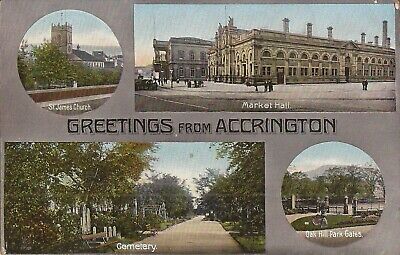
by Reg Green
As I’ve aged, I’ve been determined to resist the temptation that afflicts old folks to complain how much worse things have become since they were young. I was reminded this week I am just such a statistic, however, when something in a book I was reading brought to mind the walks I was taken on as a child in Accrington, the small town where I was born in the north of England, whose name, derived from acorns, shows that it had once been part of the vast forest covering northern Europe from time immemorial.
The town’s most prominent natural feature is a hill called The Coppice (‘woodland’ again) and no-one I knew saw anything odd about its name, although by then it was completely treeless, due to the insatiable demand for fuel for the industrial revolution, which can be said to have had its beginnings in this very area with the mechanization of cotton spinning.
A few years ago, back in England for a short stay, I took one of those childhood walks, which now wound through a thicket of mature trees, planted after World War II as a community beautifying project.
Quite amazed at the change, I stopped a woman, in her fifties, I’d guess, hiking purposefully along, and asked. “Excuse me, how long have these trees been here?” “Oh, forever,” she said. And, of course, for her they had.
It’s true that they made a pleasing sight in their warm colors, other walkers seemed to be enjoying themselves and no doubt the town counselors were pleased with their own farsightedness but I couldn’t stop a complaint rising inside me that said, “They’ve turned a bare, windswept landscape fit for Vikings (who settled nearby) into a pretty picture.”
Just another mean old man, after all.
- Like
- Digg
- Tumblr
- VKontakte
- Buffer
- Love This
- Odnoklassniki
- Meneame
- Blogger
- Amazon
- Yahoo Mail
- Gmail
- AOL
- Newsvine
- HackerNews
- Evernote
- MySpace
- Mail.ru
- Viadeo
- Line
- Comments
- SMS
- Viber
- Telegram
- Subscribe
- Skype
- Facebook Messenger
- Kakao
- LiveJournal
- Yammer
- Edgar
- Fintel
- Mix
- Instapaper
- Copy Link







2 Responses
Do you support Accrington Stanley?
That should be a good match at home to Charlton at the end of the month.
Even at 51 I resist the tendency.
Plus, as you say, it’s always worth remembering that whatever is new might merely replicate that which is very old, and that which seems to one to represent the old, might once have been new.
It’s best to be aware of it- that the land fit for Vikings only appeared in a given case in the 19th century and that the trees restore an older world [probably the wrong species, but still]. But one can also simply express preferences directly- I liked the evidence of man’s glorious works that once one saw, instead of thinking it a land flat since Harald’s day. If it actually was bare in Harald’s day, one can still say that. It’s then less a matter of automatic preference for old or new, but for a specific period or a specific set of conditions. Who could gainsay that?